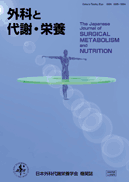Volume 57, Issue 4
Displaying 1-11 of 11 articles from this issue
- |<
- <
- 1
- >
- >|
-
2023 Volume 57 Issue 4 Pages 85-87
Published: August 15, 2023
Released on J-STAGE: September 15, 2023
Download PDF (682K) -
2023 Volume 57 Issue 4 Pages 88-94
Published: August 15, 2023
Released on J-STAGE: September 15, 2023
Download PDF (993K) -
2023 Volume 57 Issue 4 Pages 95-99
Published: August 15, 2023
Released on J-STAGE: September 15, 2023
Download PDF (879K) -
2023 Volume 57 Issue 4 Pages 100-103
Published: August 15, 2023
Released on J-STAGE: September 15, 2023
Download PDF (736K) -
2023 Volume 57 Issue 4 Pages 104-107
Published: August 15, 2023
Released on J-STAGE: September 15, 2023
Download PDF (812K) -
2023 Volume 57 Issue 4 Pages 108-112
Published: August 15, 2023
Released on J-STAGE: September 15, 2023
Download PDF (745K) -
2023 Volume 57 Issue 4 Pages 113-117
Published: August 15, 2023
Released on J-STAGE: September 15, 2023
Download PDF (861K)
-
2023 Volume 57 Issue 4 Pages 118-126
Published: August 15, 2023
Released on J-STAGE: September 15, 2023
Download PDF (807K) -
2023 Volume 57 Issue 4 Pages 127-134
Published: August 15, 2023
Released on J-STAGE: September 15, 2023
Download PDF (856K)
-
2023 Volume 57 Issue 4 Pages 135-143
Published: August 15, 2023
Released on J-STAGE: September 15, 2023
Download PDF (1047K)
-
2023 Volume 57 Issue 4 Pages A57_4-
Published: 2023
Released on J-STAGE: September 15, 2023
Download PDF (664K)
- |<
- <
- 1
- >
- >|
